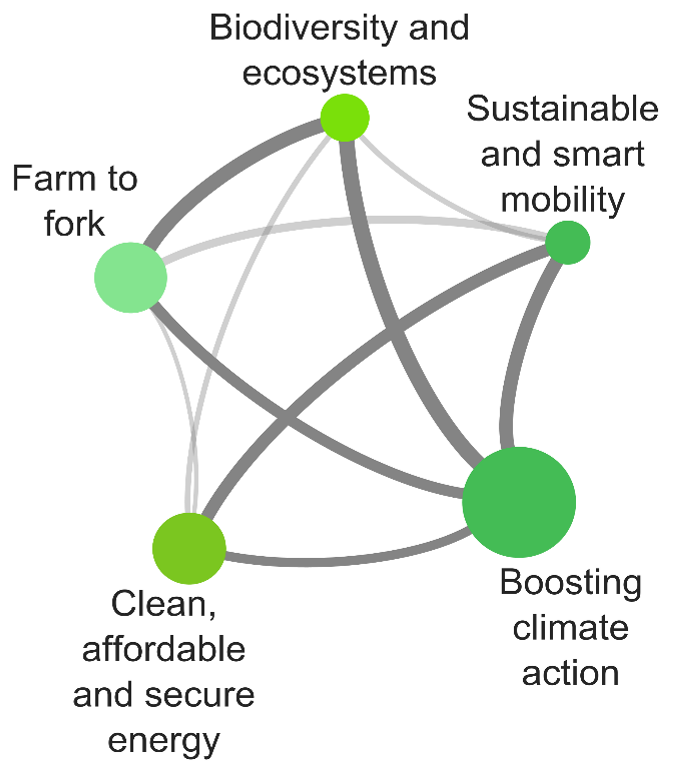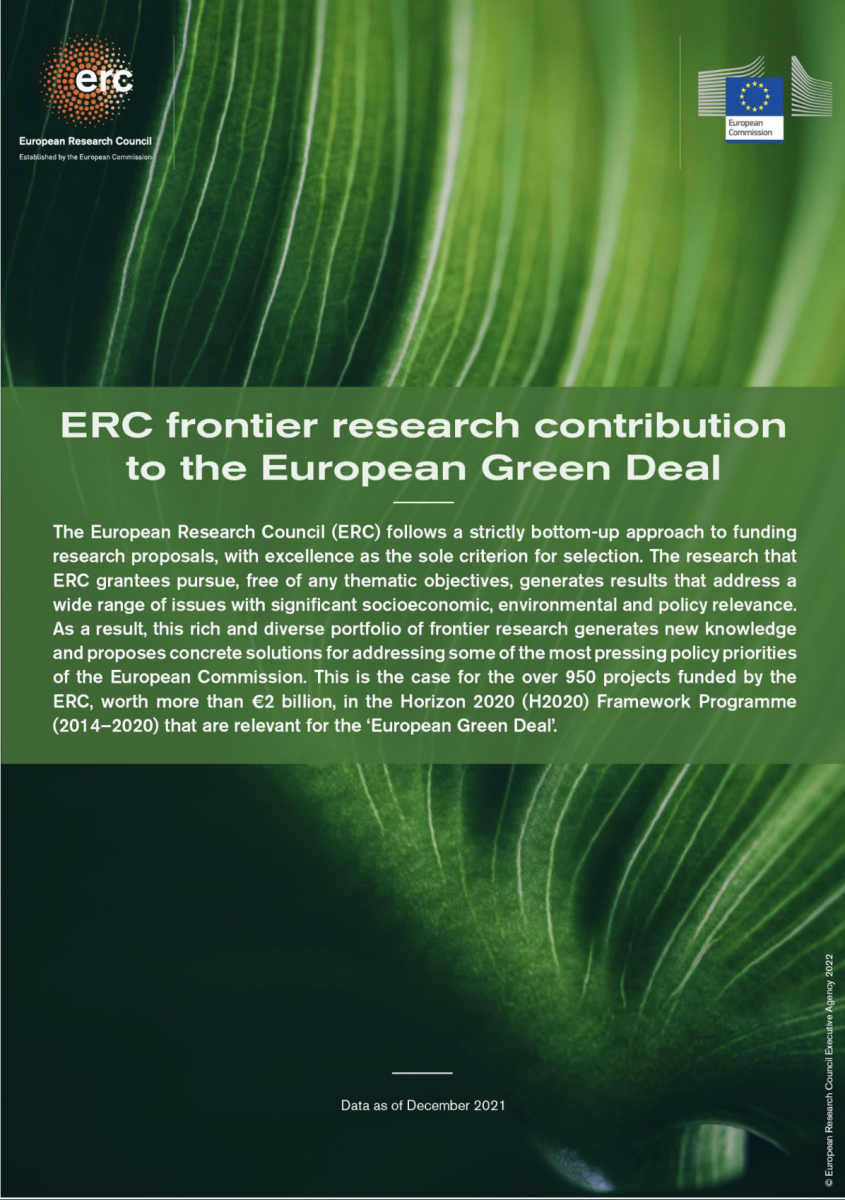Watching this video you are accepting Youtube cookies policy
Europe is striving to become the world’s first climate-neutral continent. The European Union has implemented a range of policies in areas such as climate, energy, transport, and taxation with the goal of reducing net greenhouse gas emissions by at least 55% by 2030, compared to 1990 levels.
As detailed in the factsheet below, 953 projects funded under the H2020 framework programme, with a total value of €2 billion, contribute to the policy areas of the European Green Deal. These projects involve 1018 researchers and their teams across 26 EU member states and Associated countries. Notably, 29% of these projects contribute to multiple policy areas, including climate change mitigation, biodiversity protection, and clean energy.
Scientific synergies
Underpinning the European Green Deal are a comprehensive set of interconnected objectives that encompass various aspects of society and the economy.
These include decoupling economic growth and resource consumption by moving to a “circular” economy that increases recycling and reduces waste. It also includes initiatives to address biodiversity loss and deforestation, as well as transformative measures in agriculture and electrifying transport.
The analysis below looked at five of those policies, represented by the green circles below. The size of each circle corresponds to the number of ERC-funded projects relevant to that policy. The thickness of the arcs represents the strength of the connection between policy areas, proportional to the number of shared scientific fields.

Methodological developments
When looking at the contribution of ERC-funded research on the advancement of scientific methods employed in the realms of the European Green Deal, substantial strides have been made in computational modeling, specifically in simulating sea level changes and CO2 fluxes.
Furthermore, significant developments have been achieved in experimental methodologies, particularly in ecosystem modeling, CO2 conversion, and micro-nano-engineering, with a specific focus on enhancing the efficiency of solar cells and energy materials.
A selection of relevant research
-
Anna Davies’ SHARECITY team explored urban food sharing initiatives, the challenges they face and how they can be made more effective to become a real transformative mechanism for sustainable cities. Read more. Project website.
-
Fernando Maestre, from the “Dryland Ecology and Global Change Lab” coordinated the first global field survey focussing on how aridity and grazing pressure changes affect dryland ecosystems. BIODESERT project.
-
Synergy grant urbisphere explores how urbanization, human behaviour and technology changes in cities will impact climate change and how the latter will influence urban populations, their vulnerability and their adaptive capacity.
-
Bettina Lotsch’s team focussed on new photocatalytic systems that efficiently harvest and convert light into chemical energy such as hydrogen, opening the new research field ‘soft photocatalysis’. More on the COFLeaf project.
-
With the 2D4D project, Elena Verdolini timely brings together two important topics: decarbonisation and disruptive digitalisation with the ultimate goal of ensuring that the digital revolution becomes a decarbonisation enabler and not a barrier. Project website.





